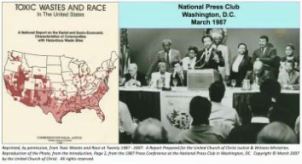
By Alejandro Colsa Perez, Bernadette Grafton, Paul Mohai (1), Rebecca Hardin, Katy Hintzen and Sara Orvis
School of Natural Resources and Environment, University of Michigan, 440 Church St., Ann Arbor, MI 48109, USA
(1) Author to whom any correspondence should be addressed
Abstract
To complement a recent flush of research on transnational environmental justice movements, we sought a deeper organizational history of what we understand as the contemporary environmental justice movement in the United States. We thus conducted in-depth interviews with 31 prominent environmental justice activists, scholars, and community leaders across the US. Today’s environmental justice groups have transitioned from specific local efforts to broader national and global mandates, and more sophisticated political, technological, and activist strategies. One of the most significant transformations has been the number of groups adopting formal legal status, and emerging as registered environmental justice organizations (REJOs) within complex partnerships. This article focuses on the emergence of REJOs, and describes the respondents’ views about the implications of this for more local grassroots groups. It reveals a central irony animating work across groups in today’s movement: legal formalization of many environmental justice organizations has made the movement increasingly internally differentiated, dynamic, and networked, even as the passage of actual national laws on environmental justice has proven elusive.
How to Cite
Alejandro Colsa Perez et al 2015 Environ. Res. Lett. 10 105002
Link
http://iopscience.iop.org/article/10.1088/1748-9326/10/10/105002/pdf
Keywords
environmental justice movement
environmental justice organizations
environmental justice activism
nonprofit organizations
organizational change

The project ENVJUSTICE has received funding from the European Research Council (ERC) under the European Union’s Horizon 2020 research and innovation programme (grant agreement No. 695446)